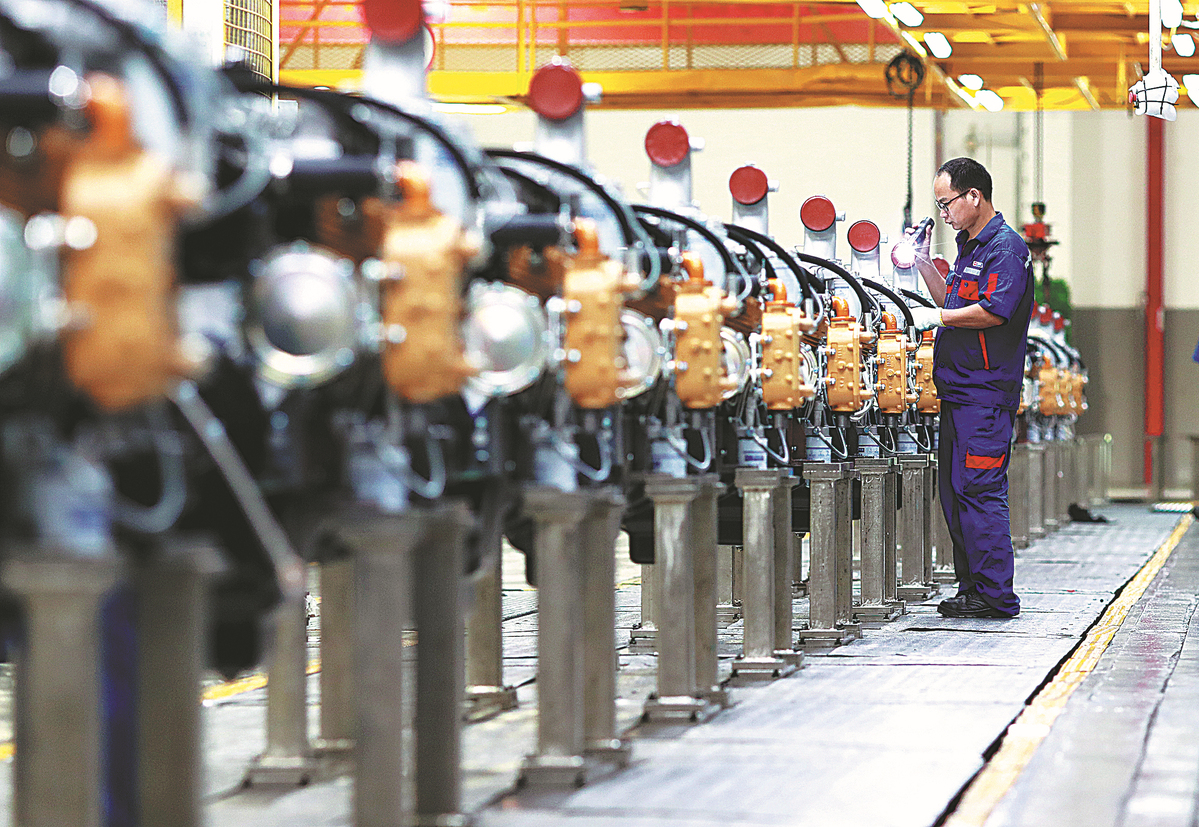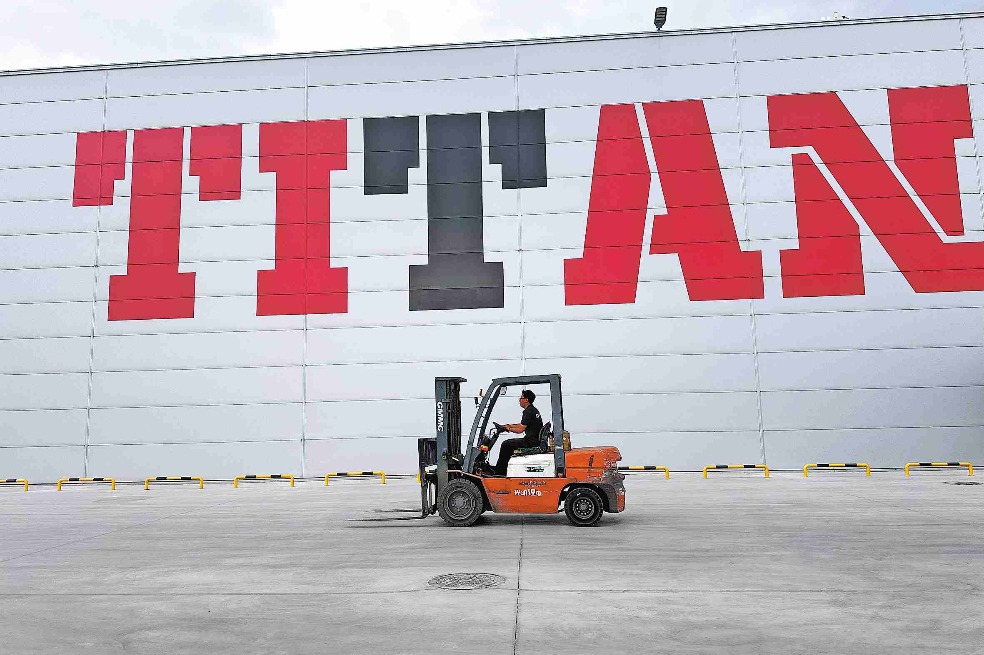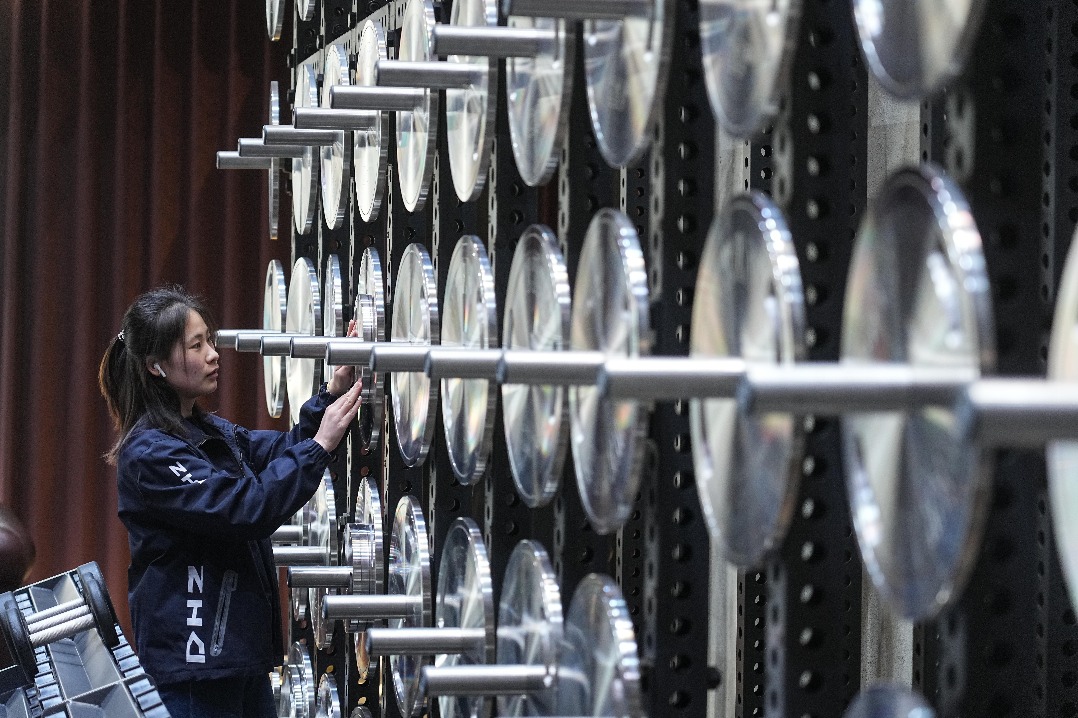RCEP to boost engine company


Yuchai charts plans to expand and introduce more green products to overseas markets
Guangxi Yuchai Machinery Group Co Ltd, or Yuchai, a major Chinese internal combustion engine manufacturer, plans to introduce more green products to overseas markets in the coming years after the Regional Comprehensive Economic Partnership agreement, the world's largest free trade agreement covering 15 economies, came into force in early January.
Apart from markets under the RCEP, such as those in Southeast Asia, the company also plans to expand its market presence in Africa, the United States and the European Union and enhance the ability of its research facilities to provide more economical, durable and powerful engines to its global clients from truck, bus, shipbuilding, power generation, to construction and agricultural machinery manufacturing industries.
As China's manufacturing capability and supply chains have become an important part of the global economy, expanding overseas business will be vital for Chinese companies to compete with other established foreign rivals over the next decade, said Li Hanyang, the company's chairman.
"For example, we have actively partnered with companies in Africa and Southeast Asia to supply customized and high-efficiency engines to businesses, especially those from infrastructure and transportation-related sectors, while offering green engines to customers in Europe and the US to keep up with the high standards in these developed markets," Li said.
"If we want to succeed, customers need to succeed first," he said, stressing that only win-win cooperation can achieve sustainable and healthy results. Yuchai will focus on its essential business and has no interest in transforming itself into an automaker. Therefore, it will not stand on the opposite side of its partners, he said.
Due to its location near the markets of the Association of Southeast Asian Nations, the State-owned enterprise headquartered in Yulin, Guangxi Zhuang autonomous region, exported more than 260,000 engines, from low-speed to high-speed, to the 10 member bloc by the end of 2021.
Despite the impacts of the COVID-19 pandemic, the company benefited from institutional trade deals such as the China-ASEAN Free Trade Agreement implemented in 2010 and upgraded in 2019, as well as the tangible growth of the Belt and Road Initiative. It shipped 20,596 units of engines to various ASEAN markets in 2021, surging 63 percent on a yearly basis.
Li underlined that quality is the priority of many countries, along with green and low-carbon urban development, such as building a more efficient public transportation system and setting tougher rules on emissions by heavy industries.
"If we look at the pace of urban expansion in many regional markets, and the way the regulatory environment and new infrastructure are being developed together, it is a remarkable and unique growth opportunity," he said.
As China aims to peak carbon dioxide emissions by 2030 and achieve carbon neutrality by 2060, Yuchai announced in late December that YCK05N, China's first hydrogen-burning engine for commercial vehicles, has been successfully tested, with effective thermal efficiency comparable to hydrogen fuel cell power.
The new engine is based on a high-pressure, multi-point inlet air injection technology and low-inertia turbocharging. It can be widely applied to municipal, sanitation, logistics and distribution services.
Li said the group will use its experience and advantages in research and development of internal combustion engines to develop a solid process of transforming the development of hydrogen-powered engines into mass production of those engines.
It plans to achieve ignition for YCK15N, another type of heavy-duty hydrogen-burning engine for heavy truck applications, in the first half. This is another move by Yuchai in the application of hydrogen energy after release of its hydrogen fuel cell, pushing the power transformation of China's internal combustion engine industry against the backdrop of the hydrogen energy era.
Compared to traditional fossil fuels, hydrogen is considered a clean and promising vehicle fuel. Hydrogen fuel cell vehicles, powered by electricity generated by compressed hydrogen fed into fuel cells, produce zero greenhouse gas emissions as they create only water, electricity and heat.
A report released by the China Machinery Industry Federation in Beijing said the country's goals for 2030 and 2060 will drive automobile consumption patterns and industrial structures to transform to electric mode at the policy level.
For instance, Hainan, a scenic island province, has been promoting the use of clean energy vehicles, with the aim of completely phasing out sales of fossil-fuel-based vehicles by 2030.
Even though the industry still faces many challenges such as changes of a vehicle's power source and fierce competition, Li said hydrogen is the ultimate energy for the future, so his group must accumulate technological advantages in hydrogen engines.
"Launching new engines that meet or exceed next generation emission standards has been a key strategy for Yuchai to create a technological edge in the commercial vehicle engine market across China," Li said.
Founded in 1951 and supported by about 15,000 employees, Yuchai currently runs more than 30 subsidiaries, with total assets of 50 billion yuan ($7.84 billion). It has industrial bases in many provinces of China, including Guangdong, Jiangsu, Anhui, Shandong, Hubei, Sichuan and Liaoning.
The implementation of the RCEP agreement will help facilitate trade liberalization and economic integration in the Asia-Pacific region. It is expected to serve as a key engine of trade and investment and to promote a more inclusive economic recovery in ASEAN in 2022 and beyond, said Zhang Jianping, head of the Center for Regional Economic Cooperation at the Chinese Academy of International Trade and Economic Cooperation in Beijing.
The RCEP accounts for nearly a third of the world's population and 30 percent of its gross domestic product. Its certificate of origin is a document provided by an exporter to prove the origin of goods at the request of an importer under the framework of the RCEP agreement. Only when the certificate is obtained can the goods be eligible for tariff exemptions in member countries.
Tu Xinquan, dean of the China Institute for WTO Studies at the University of International Business and Economics in Beijing, said ASEAN countries have long been important trade partners and investment destinations for Chinese businesses due to their levels of growth and abundant resources.
In 2020, ASEAN became China's largest trading partner and China had been ASEAN's largest trading partner for 12 consecutive years. During the first 11 months of 2021, bilateral trade soared 20.6 percent year-on-year to 5.11 trillion yuan, accounting for 14.4 percent of China's total foreign trade during the same period, said the General Administration of Customs.




































